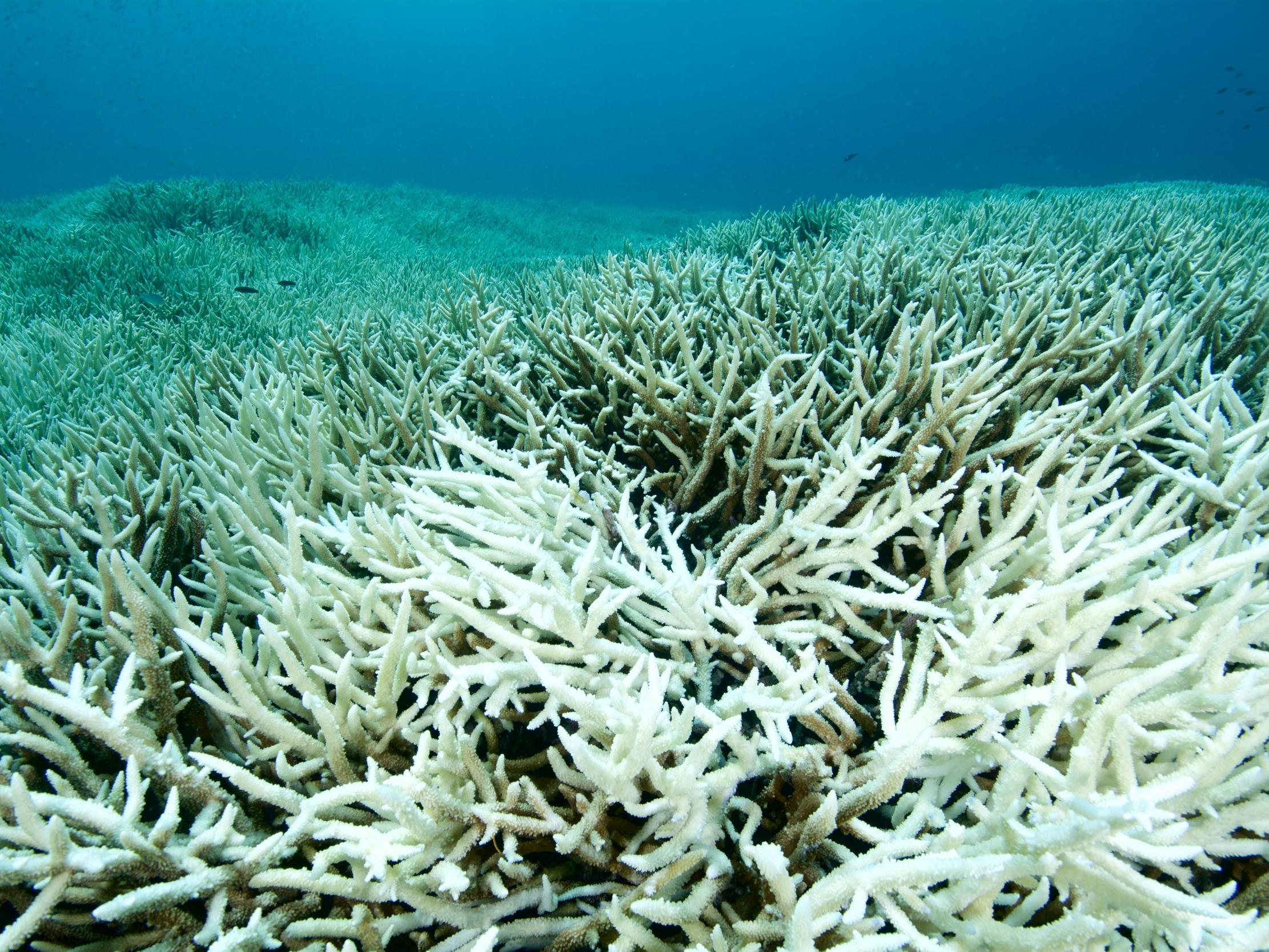Great Barrier Reef endures 'most extensive coral bleaching ever' as sea temperatures rise
'“We're right at the fork in the road,' says scientist Ove Hoegh-Guldberg as experts warn the amount of coral that will recover remains unknown

The Great Barrier Reef is facing a critical period of heat stress over the coming weeks following the most widespread coral bleaching the natural wonder has ever endured, scientists said.
David Wachenfeld, chief scientist at the Great Barrier Reef Marine Park Authority, the government agency that manages the coral expanse off northeast Australia, said ocean temperatures over the next month will be crucial to how the reef recovers from heat-induced bleaching.
“The forecasts ... indicate that we can expect ongoing levels of thermal stress for at least the next two weeks and maybe three or four weeks,” Mr Wachenfeld said in a weekly update on the reef's health on Thursday.
“So this still is a critical time for the reef and it is the weather conditions over the next two to four weeks that will determine the final outcome,” he said.
Ocean temperatures across most of the reef were 0.5 to 1.5C above the March average.
In parts of the marine park in the south close to shore which avoided the ravages of previous bleachings, ocean temperatures were 2 to 3C above average.
The authority has received 250 reports of sightings of bleached coral due to elevated ocean temperatures during an unusually hot February.
The 133,360-square mile World Heritage-listed colourful coral network has been devastated by four coral bleaching events since 1998.
The most deadly were the most recent, in consecutive summers in 2016 and 2017.
Scientists fear the latest coral death rate could match those events.
“At the moment, it's definitely the most extensive bleaching event we've ever had,” US National Oceanographic and Atmospheric Administration Coral Reef Watch scientist William Skirving said on Friday.
“It's certainly an end-to-end bleaching event with severe bits at each end and it's not looking good for the southern end, but it really depends on the weather in the next two weeks,” he said.
Ove Hoegh-Guldberg, a scientist from the Australian Research Council Centre for Excellence in Coral Reef Studies, said how much of the bleached coral would recover and how much would die would not be known for weeks.
“I'm very worried about the situation given how warm the temperatures are on the Great Barrier Reef and what the projections are,” Mr Hoegh-Guldberg said.
“If it cools down a bit, they'll recover or, if not, we may head off into something not too different from 2016 and 2017.
“We're right at the fork in the road,” he added.
The Great Barrier Reef Marine Park Authority last year downgraded its outlook for the corals' condition from “poor” to “very poor” due to warming oceans.
Its latest report, which is updated every five years, found the greatest threat to the reef remained climate change.
The other threats are associated with coastal development, land-based water runoff and human activity such as illegal fishing.
Associated Press
Join our commenting forum
Join thought-provoking conversations, follow other Independent readers and see their replies
Comments
Bookmark popover
Removed from bookmarks